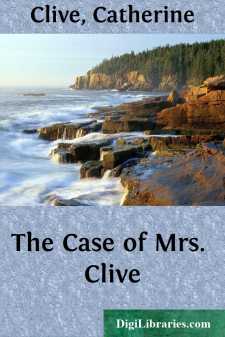History
- Africa 30
- Americas (North Central South West Indies) 50
- Ancient 68
- Asia 58
- Australia & New Zealand 8
- Canada 41
- Caribbean & West Indies 1
- Civilization 20
- Eastern Europe 12
- Europe
- Expeditions & Discoveries 60
- General 77
- Historical Geography 1
- Jewish 9
- Latin America 3
- Medieval 8
- Middle East 13
- Military 248
- Revolutionary 8
- Study & Teaching 5
- United States 353
- Western Europe 56
- World 13
Europe Books
Sort by:
THE FIRST CHAPTER. Hitherto haue we spoken of the inhabitants of this Ile before the comming of Brute, although some will néeds haue it, that he was the first which inhabited the same with his people descended of the Troians, some few giants onelie excepted whom he vtterlie destroied, and left not one of them aliue through the whole Ile. But as we shall not doubt of Brutes comming hither, so may we...
more...
THE FIRST CHAPTER. EGELRED. In the former booke was discoursed the troubled state of this land by the manifold and mutinous inuasions of the Danes; who though they sought to ingrosse the rule of euerie part and parcell therof into their hands; yet being resisted by the valiantnesse of the gouernors supported with the aid of their people, they were disappointed of their expectation, and receiued manie a...
more...
THE FIRST CHAPTER. Now Plautius had much adoo to find out the Britains in their lurking holes and couerts; howbeit when he had traced them out, first he vanquished Cataratacus, and after Togodumnus the sonnes of Cynobellinus: for their father was dead not verie long before. These therefore fléeing their waies, Plautus receiued part of the people called Bodumni Catuellani Bodumni (which were subiects...
more...
THE FIRST CHAPTER. Having ended our former booke with the end of the Romane power ouer this Iland, wherein the state of the Iland vnder them is at full described; it remaineth now that we procéed to declare, in what state they were after the Romans had refused to gouerne them anie longer. Wherefore we will addresse our selues to saie somewhat touching the succession of the British kings, as their...
more...
THE FIRST CHAPTER. INAS. 689. After that Ceadwalla, late K. of the Westsaxons was gone to Rome, where he departed this life (as afore is shewed) his coosen Inas or Ine was made king of the Westsaxons, begining his reigne in the yéere of our Lord 689, in the third yeere of the emperor Iustinianus the third, the 11 yéere of the reigne of Theodoricus K. of France, and about the second The Britains...
more...
THE FIRST CHAPTER. MULMUCIUS. Matth. West. Polyd. Now to proceede with the aforesaid authors, Mulmucius DunwallÐâ¦ÐÐ, or as other saie Dunuallo Mulmucius, the sonne of Cloton (as testifieth th'english chronicle and also Geffrey of Monmouth) got the vpper hand of the other dukes or rulers: and after his fathers deceasse began his reigne ouer the whole monarchie of Britaine, in the...
more...
THE FIRST CHAPTER. What manner of people did first inhabite this our country, which hath most generallie and of longest continuance béene knowne among all nations by the name of Britaine as yet is not certeinly knowne; neither can it be decided frÐâ¦ÐÐ whence the first inhabitants there of came, by reason of such diuersitie in iudgements as haue risen amongst the learned in this The...
more...
INTRODUCTORY NOTE Jean Froissart, the most representative of the chroniclers of the later Middle Ages, was born at Valenciennes in 1337. The Chronicle which, more than his poetry, has kept his fame alive, was undertaken when he was only twenty; the first book was written in its earliest form by 1369; and he kept revising and enlarging the work to the end of his life. In 1361 he went to England, entered...
more...
by:
Ruth Putnam
CHAPTER I CHILDHOOD 1433-1440 On St. Andrew's Eve, in the year 1433, the good people of Dijon were abroad, eager to catch what glimpses they might of certain stately functions to be formally celebrated by the Duke of Burgundy. The mere presence of the sovereign in the capital of his duchy was in itself a gala event from its rarity. Various cities of the dominions agglomerated under his sway...
more...
by:
Catherine Clive
INTRODUCTION Among other things, the licensing act of 1737 stipulated that Covent Garden and Drury Lane exclusively were the patented and licensed theaters (respectively) in London, a fact directly related to the revolt of prestigious players six years later. Although there were sporadic performances of "legitimate" drama in unlicensed playhouses between 1737 and 1743, full-time professional...
more...











